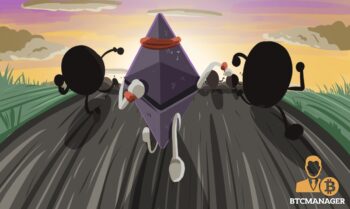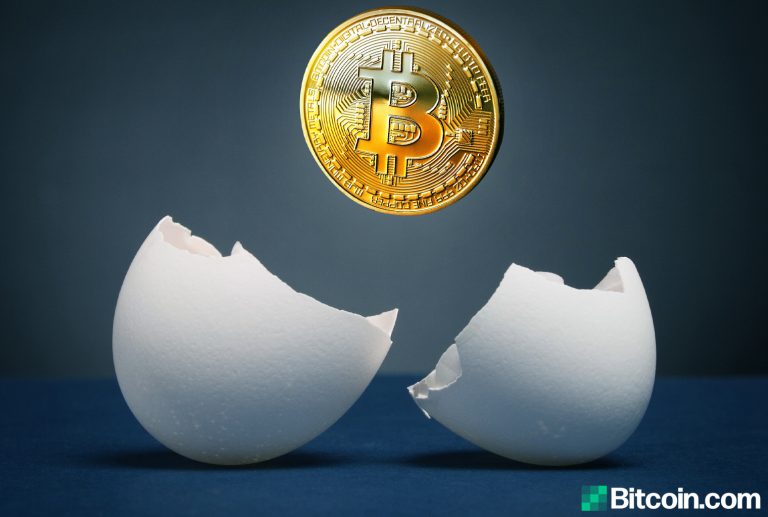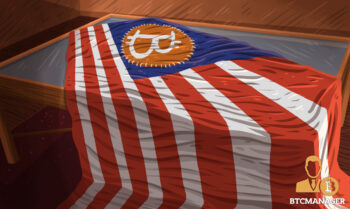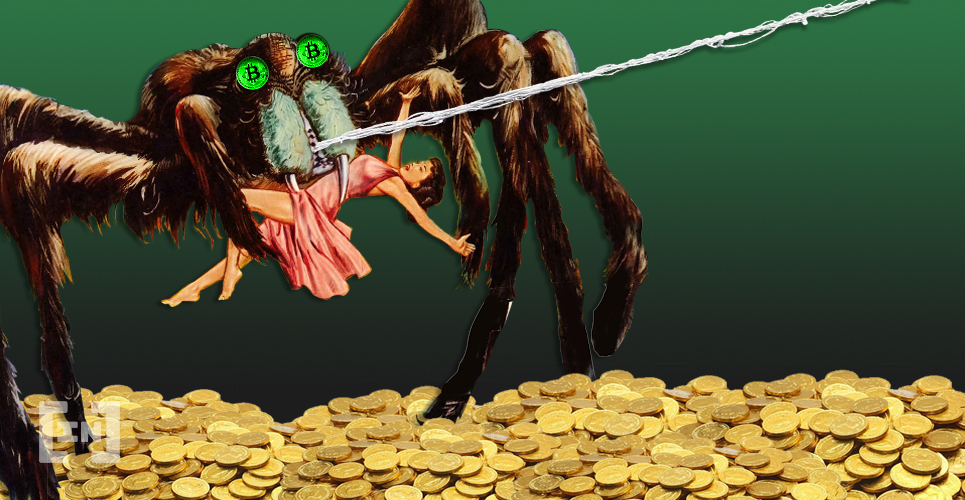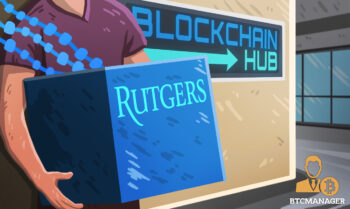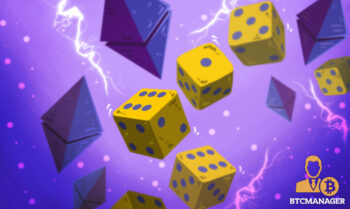2020-9-23 17:17 |
Did you know that blockchain could revolutionize gamers’ lives? When we think of blockchain, we quickly tend to think of cryptocurrencies like Bitcoin.The funny thing is that when you look back at old games that used to be popular like Habbo Hotel (yes, you’re allowed to feel old if you remember the days), there were already forms of items being traded online a long time ago.
Tokens in video games have existed for ages. Even in old arcade machines, they were already a thing. Step by step, cryptocurrencies started to show up in online games, mostly as a way to buy items from other players. You might not have known they existed in them, but video games have evolved into the perfect blockchain use case. The question is: What are the potential benefits ? Or constraints…
That’s what we will talk about today. Games have witnessed the growth of cryptocurrencies, and are now taking an interest in the technology which gives life to these digital assets: blockchain. Do not be afraid, we’re not talking about a complete reboot of the gaming industry, but about the myriad of wonderful new features and use cases. For those unfamiliar with blockchain: it’s a decentralized public ledger that records the entire history of transactions. Cryptocurrencies are the best known usage of blockchain, but it’s definitely not limited to this. Let’s dive into the revolution blockchain can bring to gaming as we know it.
Payment and true ownership: non-fungible tokens and fungible tokensIf you’ve played online games, you’ll be all too familiar with the phenomenon of everyone trying to get the rarest items and most epic gear. If you want to be different and get the coolest or most beautiful skin for your in-game character, you will usually need to make a micro transaction. More specifically, you will need to pay a small amount of real-life money in exchange for an item or an in-game currency or token.
Concrete example now: if you want a new skin in Fortnite, you will need to buy V-bucks in order to purchase it. The V-bucks are fungible tokens. Like US dollars bills, one V-buck has the same value as another V-buck and is no different from it. Skins are similarly fungible: the Fortnite Leviathan skin that you have would be no different from the one your friend has.
However… imagine if each skin was unique. Not one single skin in Fortnite, Minecraft or League of Legends would be the same. Now, things would get interesting. You would be the only person that owns the skin you’re using, looking completely different from anyone else in the game. This would turn your skin into a non-fungible token (NFT): a unique asset that has a different value from others.
Not only would this be an awesome feature for any game, it’d also create a pretty lively marketplace. The community would start valuing skins differently based on likes and dislikes. They could even come with their own strengths or perks, rather than just being a visual feast. Aside from truly owning your own in-game item, it’ll create a unique economy within the game too – potentially one that extends to other games, or even real-life.
Blockchains are extremely suited for keeping track of all of these unique NFTs. As a matter of fact, games using NFT through blockchain technology already exist. The best known one is Cryptokitties, where each digitally created cat is completely unique from the others. This gives each of them a different valuation, with the most expensive Cryptokitty having sold for the massive value of $170,000. There’s even a trading card game somewhat similar to Hearthstone or Magic the Gathering called Gods Unchained, where the “Hyperion” card was auctioned for a whopping value of $60.000.
Key learnings:
The gaming world and blockchain are closely tied up. They are digital, they respect specific rules, they use tokens. Those similarities are the proof that evolutions will soon arrive.With blockchain technology, you could truly own your in-game items (buy, sell or even bring them to another game). You could enjoy freedom and control to do whatever you want with your items. Rewarding GamersCryptocurrencies and tokens can be specifically interesting for rewarding those who’ve bought or played a game.
The popular gaming platform Steam already does this in a way. For some purchased games, you can earn trading cards during your playtime. Unlocked some achievements in Subnautica or the Halo Master Chief Collection? Well, here’s a trading card for you! These cards can then be collected or traded on their platform for credit – which you can use to get new games.
Blockchain technology could easily facilitate this. Let’s say you bought yourself a BioWare game like Mass Effect. You could then be rewarded with 10 BioWare tokens, which can be used for a discount on downloadable content or new games. It’d create an interesting loyalty program for both gamers and game developers.
Key learnings:
The gaming world would be a great place for loyalty programs, rewarding those sticking to their favorite brands.Tokens and cryptocurrencies would be an easy way of rewarding the community. Cloud Gaming and StreamingHere is another business that blockchain is subtly infiltrating. With cloud gaming, it is possible for every gamer to play their favorite video games on every computer. It’s like streaming a video on YouTube, except you’re playing a video game instead. Even with that old laptop that you’ve been meaning to replace for a few years, you are able to play GTA V or Call of Duty. You just need an internet connection.
So where does blockchain enter the scene? The platform Vectordash. It allows users to lend their PC’s power to the network. This is used to power the cloud gaming services it hosts. Those who provide power to the network are then rewarded in cryptocurrencies, making it a win-win.
Similarly, blockchain-based platforms can be used for streaming as well. Many streamers have already joined the movement. For example, PewDiePie who owns the second-most subscribed channel on Youtube used to have a partnership with the blockchain based streaming Platform DLive. Thanks to the decentralized nature of the platform, it is not possible to censor any users. As a reminder, this partnership appeared shortly after YouTube was petitioned to ban his channel.
Other famous streaming platforms have also started integrating cryptocurrency in their ecosystem. For example, Twitch has partnered with a crypto payments provider and offers a rebate on all subscriptions purchased with crypto. This means that Twitch users can now support their favorite streamers by paying for their subscriptions in Bitcoin and many other digital assets.
Key learnings:
For the moment, cryptocurrency is mostly used to reward stakeholders of the gaming world.In the future, you could be able to play the game you want without any dedicated hardware for it. What will become the console industry, when you can play any game you want, anywhere you want through your smartphone?
It’s easy to see that the gaming industry will evolve a lot with the democratization of this new technology. However, blockchain appearances in gaming use cases is just at its beginning. Of course, there are already many examples of startups with innovative ideas, but we are still far from a mass adoption of this technology. For most of them, their ideas are very technical and start growing interest only to specific stakeholders of the business. But do not worry, it will happen.
For major corporations’ strategy and trials to implement blockchain in their business, we can easily assume that something is happening – it’s only a matter of time. What’s better than a game to start raising awareness on blockchain rules? We are all familiar with how a game works: there are rules, there are goals to achieve in each level and you just have to use the rules to reach the final stage. Most of all, games are a very good way to learn new things. Did you also see your nephew learning maths on his Nintendo DS with Big Brain Academy? Or coding with Rabbids Coding? Why not blockchain then?
origin »Bitcoin price in Telegram @btc_price_every_hour
High Performance Blockchain (HPB) íà Currencies.ru
|
|

